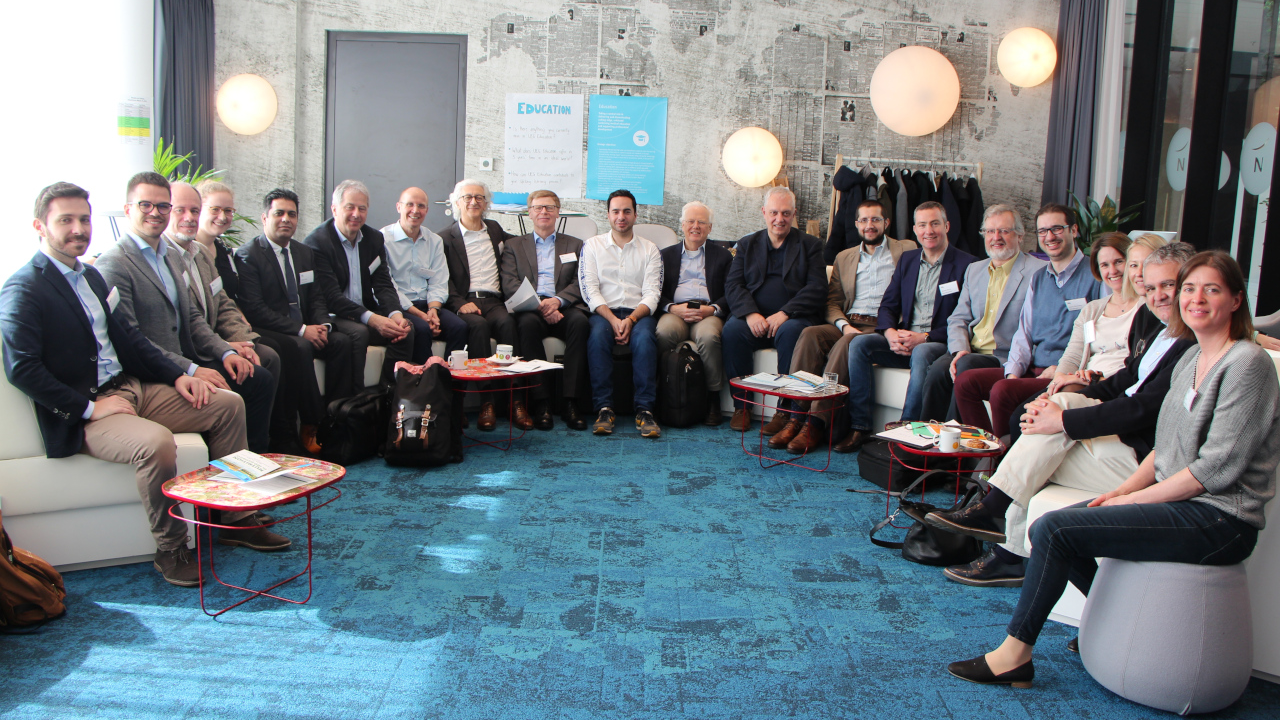
There are many different ways to learn, both in the classroom and online. Here, Natalie Wood, Lead Editor of UEG E-learning, introduces some exciting new UEG Education learning formats to look out for in the coming months and provides a rundown of what’s already on offer. A reminder of how UEG Education hopes to cater for all!
Hopefully, the fact that you're reading this blog means you’re already aware of what UEG Education has to offer. But do you know about the exciting new learning opportunities coming your way? All are designed to complement the different learning formats already available to benefit your learning.
UEG Masterclass
One of our exciting new projects is the "UEG Masterclass”. This format offers the best of both worlds — a blended learning experience that connects online and classroom elements. Learners will undertake a short, tailored programme of online learning before spending 2 days with expert faculty and fellow participants for case-based learning in small groups. The classroom element will reinforce and build on the online learning. Indeed, a UEG Masterclass will not only provide participants with an excellent knowledge base but the confidence to apply what they have learnt.
For those of you with an interest in pancreatic disease, the very first multidisciplinary UEG Masterclass will be on chronic pancreatitis. Thanks to the hard work of the Masterclass taskforce, led by Programme Director and Education Committee member Djuna Cahen, our expert faculty is in place and the programme is agreed, with the classroom element taking place at the House of European Gastroenterology in Vienna on January 21–22, 2021. Spaces are limited, so make sure you don't miss the opportunity to take part — registration will soon be open!
UEG Webinars
Another new learning format we’re introducing is “UEG Webinars”. We’ll be inviting experts to cover new, hot or controversial topics, topics that are becoming better understood, and to perhaps offer differing or new perspectives. The webinars may take the form of a debate or a case presentation, for example, but you will always have the opportunity to interact with the experts and to ask questions, all from the comfort of your own chosen location! UEG Webinars will be scheduled for the evening and last ~30 minutes (depending on the level of interactivity). Registration is completely free, but spaces will be limited, so don’t forget to sign up if you're interested.
The eagle-eyed amongst you may have already seen the announcement for the inaugural UEG Webinar “What's new in FMT?”, which will take place on March 3, 2020, at 19:00 (GMT)/20:00 (CE). We’re very lucky to have lined up experts Georgina Hold and Josbert Keller for the webinar and Imran Aslam from the UEG Education Committee as moderator. Registration is now open, so sign up for free if you want to learn who faecal microbiota transplantation (FMT) is for, how it's performed and whether or not it's safe!
UEG Learning bytes
The final new activity we’re bringing your way in the coming months is “UEG Learning bytes”. Each one will cover a single specific topic in the field and meet a single learning objective. Taking just a few minutes to watch, these online videos will provide a condensed and quick way to enhance your knowledge. The UEG Learning bytes will be freely available to those with a myUEG account via ueg.eu/education.
So far, the topics that we plan to cover as Learning bytes include variceal banding, HRM tracing, PEG placement and foreign bodies, with many more ideas in the pipeline. Look out for the UEG Learning bytes, starting in Q2 2020.
Current offerings
For those of you who can't wait for the new activities to launch, why not remind yourself of the UEG Education offerings you can already access? There are many well-established activities that are designed to complement each other and offer different ways of learning, according to your preferences — many also have the benefit of being CME accredited!
Our classroom courses offer intense face-to-face learning experiences and all provide the perfect opportunity to network with peers and experts. Unlike previous years, you can now choose to attend one of three Basic Science Courses – with groups sizes capped at 15 there is increased emphasis on hands-on training and interaction with tutors and faculty. The Basic Science Courses on offer in 2020 are “Gut microbiota: relevance, analysis, modulation”, “Basic & translational research in motility & neurogastroenterology” and “Hot topics in experimental GI cancer”. Or you could apply for our ever-popular clinically oriented Summer School, which combines practical skills training with state-of-the-art lectures and case presentations. Alternatively, you could choose the Young Investigators Meeting, which specialises in research, statistics and writing papers, or the Evidence-Based Medicine Course, which takes place during UEG Week and uses clinical cases to explore how best to tackle the search for evidence on which clinical practice can be based.
If online learning works for you then there are 20 UEG online courses to choose from, plus several others from member societies. Most of the courses last no longer than an hour and all are split into sections that you can dip in and out of when you have time. The courses are generally made up of comprehensive PPT slides, bespoke presentations and video footage, and there is an opportunity to test your pre- and post-course knowledge. High-quality infographic course overviews are also available for our most recent online courses. Topics covered so far include ERCP, gastrointestinal NETs, GORD (both diagnosis and pathophysiology), chronic and autoimmune pancreatitis, constipation, colorectal polyps and polypectomy. More online courses will be made available in 2020, starting with the epidemiology and aetiology of IBD and acute pancreatitis — both coming soon!
The “Mistakes in…” series offers another chance to learn from the experts, this time in a written format. The beauty of these concise articles is that they go beyond what can be found in textbooks and equip learners with the tips and insight needed to avoid making the mistakes that are obvious to those with experience. Each article discusses up to 10 mistakes, which may be common or infrequent but with a high clinical impact. More than 40 articles have been published so far and new articles are added on an ongoing basis — all are available for free to myUEG users! And for those of you who like watching presentations, we were asked to put together a “Mistakes in…” session for both UEG Week 2018 and UEG Week 2019, with more sessions to come in 2020!
For case-based online learning, our ‘Decide on the Spot’ articles present a brief scenario and then pose one or more questions for you to answer, with the correct answer and discussion posted online shortly after. The cases are generally clinical, but relevant basic science scenarios are available too. Details of the DOTs articles are posted on various social media channels with interactive polling available.
For those who like controversy or debate, our "Head-to-Head" blogs are very short opinion-based articles that promote opposing viewpoints on a whole range of topics. Discussion of topics is actively encouraged via Social Media polls, so be sure to have your say! The Head-to-Head blogs can be found alongside the GI Hive blogs, which provide young European gastroenterologists with up-to-date information on life, career development and education.
UEG Education roadmap 2020 and strategy
Finally, if you would like to hear more about the UEG Education roadmap for 2020 and the strategy for the years ahead, please take a look at the article from UEG Education Chair, Charles Murray, which he recently wrote for the UEG Journal. In addition to all the projects mentioned above, Charlie outlines how, in collaboration with the EBGH, we are mapping UEG Education content to the Blue Book, making UEG the go-to resource for anyone undertaking the European Specialty Examination in Gastroenterology and Hepatology [ESEGH].
All in all, regardless of how you like to learn, we hope that UEG Education provides you with all the resources you need to learn, advance and excel!


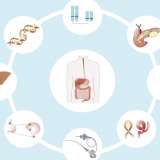

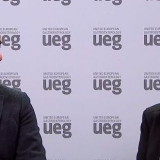
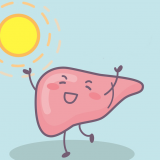
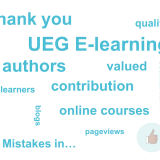
Please log in with your myUEG account to post comments.